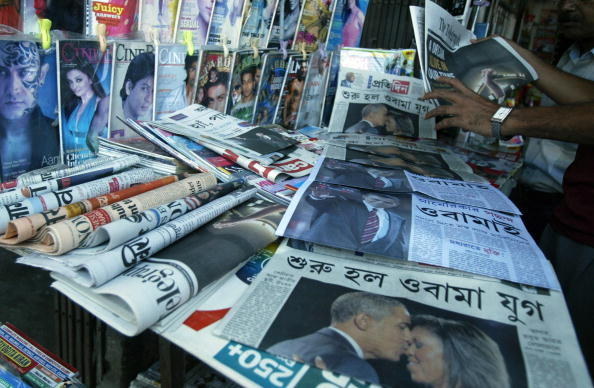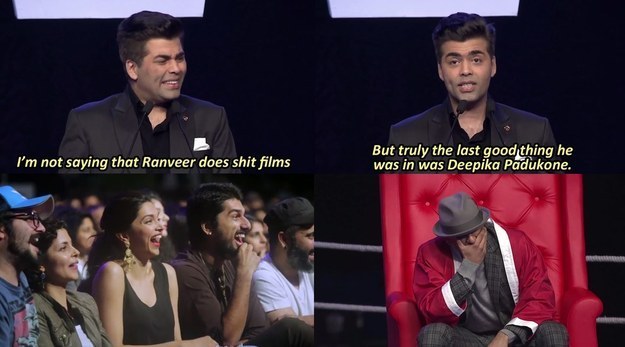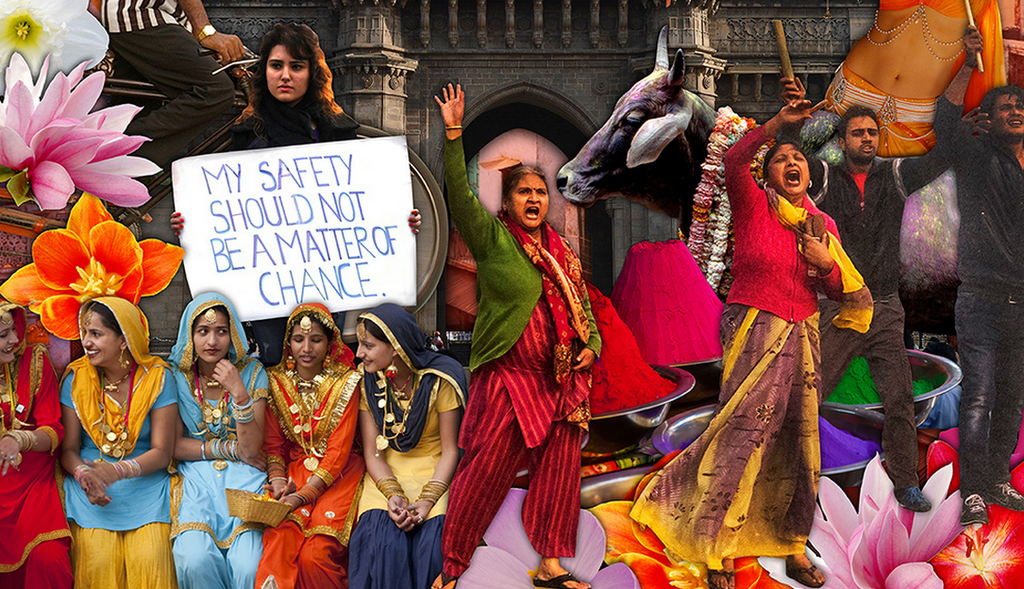
It took one mid-morning viewing of the 59-minute, incomparably hyped documentary to surmise that BBC's "India's Daughter" was not made for an Indian audience. (That is, if you weren't already tipped off by its slated simultaneous 7-country release and the global campaign scheduled for right after.) It recaps information we've had engraved in our collective memory for two years; it dramatically reconstructs images that were seared in our brains indelibly; it hammers home a simplified narrative – rapists are monsters, India is angry – that conversations in India have evolved far past.
Before its release, "India's' Daughter" by Leslee Udwin raised a lot of Indians' hopes, myself included. In its press and publicity, it appeared to be the analytical, thought-provoking, comprehensive look at the culture of misogyny that allowed Dec. 16th 2012 to happen. In reality, it only just scratched the surface.
The story it tells is still harrowing, no matter how well you know it, and only a psychopath would be emotionally unmoved by the image of a father crying while he describes having to burn his daughter's body. But, while it is heartbreaking and emotionally captivating in parts, stripped of the hype surrounding it, "India's Daughter" contains little new information for the average news-reading Indian.
And yet, it has been the topmost trending topic on Twitter in India for two days. It commanded the coveted attention of India's primetime news anchors and their millions of viewers. It has inspired hundreds of articles already and hundreds of thousands of page-views. And all in thanks to one entity that, ironically, set out to mute this conversation and ended up amplifying it: The government of India.
On Mar. 3, after an excerpt from Udwin's forthcoming documentary went viral (in it, the accused, convicted, death-row prisoner rapist says women are at fault for rape), the government's Ministry of Information & Broadcasting banned its release in India.
(As soon as the controversy surrounding her documentary began, Leslee Udwin fled India in a hurry, fearing for her safety and freedom.)
Even before anyone had viewed the documentary in full (and that fact is important to note), a lot of people found it to be problematic, and for various reasons. The title, for instance, drew the ire of feminists across the subcontinent. To organize a global movement around a "daughter" is to perpetuate the extraordinarily harmful and pervasive notion that women are defined by their relation to their families, and specifically with their relation to men. Others felt that the whole exercise reeked of western, white voyeurism more than it did conscientious awareness-raising. Several people found it problematic to permanently pin the identity of "rapist" onto Mukesh Singh, a stranger to the victim in a brutal, one-time crime. (The argument was that such incidents, while unforgivable, constitute a minuscule fraction of India's rapes, and to make this man the face of rape culture potentially makes it easier for all the uncles, fathers, husbands, friends, boyfriends, and neighbours, who constitute the bulk of this country's sexual assaulters, to remain in the shadows.) Still others were glad for the ban because court cases surrounding the crime are still underway and to release an interview with the accused and his lawyers is to derail the process of justice.
These reasons, each a valid critique, are unfortunately not the ones that the Ministry of Information & Broadcasting used to justify their ban. While their statement nods towards the legal ramifications of airing such a documentary, it first reasons that airing footage of the accused rapist being interviewed could "encourage and incite violence against women, thus compromising women's public safety" and "provide encouragement to antisocial elements to indulge in violent acts compromising law and order."
I'm sorry. Hold up.
That encouragement was provided a long, long time ago when Bollywood made street harassment and sexual coercion synonymous with romance. It is provided doubly every few weeks when some or another politician gracelessly rams a foot into their own mouth, blaming everything under the sun for rape – cellphones, mannequins, chow mein, the victim – except the patriarchy and rape culture that have been institutionalized variously in our laws and their enforcement.
So what's really going on here?

The brutal Paris terrorist attack in which nine Charlie Hebdo writers and cartoonists lost their lives (of a total death toll of 12) is still fresh in our collective global memory. So is the arrest and subsequent year-long imprisonment of Peter Greste and his fellow Al Jazeera journalists in Egypt. The world (including some of its most powerful people) has recently rallied in support of the Saudi Arabian man sentenced to 10 years in jail and 1,000 lashes for maintaining a blog called Free Saudi Liberals. Last month, one of Russia's last remaining independent TV stations was forced off the air because its political leanings didn't sit well with certain people in positions of power. With these headlines flitting in and out of the foreground, we've watched on helplessly for the last year as journalist after journalist has been viciously punished the world over for committing what is quickly becoming one of the most courageous and fatal acts in the world: simply enacting freedom of expression.
As of the last two months, India – never slow to pick up on global trends – became the newest addition to a fast-growing list of nations where citizens' right to express their opinions is under threat of extinction.
While assaults on Indians' freedom of expression aren't new (fatwas against Salman Rushdie and late artist M.F. Hussain are testament to our rich history of violent censorship), this nation's propensity to taking offence has snowballed in recent weeks, giving rise to an India where the Kama Sutra, if released today, would incite riots and court cases.
Yesterday, it was announced that the movie 50 Shades Of Grey has been banned from airing in India. Simultaneously, a Bollywood film named Dirty Politics was banned from release in Bihar for "objectionable scenes." Earlier this week, the word "lesbian" was muted in the film Dum Laga Ke Haisha. A few weeks ago, the censor board leaked a list of words they intended to ban in movies (this list was tabled following public furor surrounding it but is still being enforced, it appears). Last month, a popular Indian comedy group took four of their YouTube videos offline after pressure from offended religious groups. That same week, a Mumbai newspaper editor went into hiding after republishing a Charlie Hebdo cover. Two newspaper vendors were arrested for the papers they chose to sell. A singer battled the censor board because he sang the word "Bombay" in a song. The month before that, a movie named MSG: Messenger Of God (which stars and promotes a self-appointed "godman" – someone who claims to have a connection with god) was rebuked by the censor board for its potential to invoke strong religious reactions. Simultaneously, a movie named PK (which critiques India's culture of "godmen") was scrutinized by the same censor board following complaints that it offended Hindu sentiments.
Inhale. Exhale.
This is not a good place for the world's largest democracy – an identifier that India dons with hilarious frequency and pride – to be.

I'm paraphrasing several people much smarter than me (most notably British political philosopher John Stuart Mill) when I say that anyone with faith in the validity of their own beliefs should and does welcome dissent and irreverence. At best, they can engage with it. At worst, ignore it. Ideally, they will learn from it either way.
In other words, any content that is offensive to one's beliefs is easy to ignore unless it also poses a threat to those aforementioned beliefs. Not liking something should lead to your saying "I don't like this," sure. But "I don't like this" should never, in a democracy, progress to "and therefore it mustn't exist and nobody else should be allowed to view it and also, for good measure, its creators must be punished."
Here is a basic truth: There are several different nations living and growing within the geographical bounds of what we call India and some of them are at odds with one another. There are few instances in our shared history that this has been more true than it is in 2015.
In an ideal world, this is a fantastic feature. Her relentless contradiction gives India the dynamism that she is adored and sought out for. It provides a stunning backdrop to her claims of grand democracy. It lends itself well to art.
Here is another truth: It is the government's duty to serve and represent all of those Indias. Not just the ones that look nice. Not just the ones that we are proud of. Not just the ones that are ideologically convenient. Every single one.
It would take a country harboring colossal insecurity and a truly angst-ridden identity crisis for its government, when faced with any truths but the one they have chosen to embrace, to resort to the most middle-school of retorts: No, you shut up.
The real reasoning behind the bans seems to be one far simpler and far, far closer to home. It is that singular killer of millions of dreams, that dictator of households, that simultaneous matchmaker and homewrecker, that broken magic 8 ball telling us all we're doomed. Log kya kahenge?
What will people say?
As he initiated legal actions against All India Bakchod, Akhilesh Tewari (President of the Brahman Ekta Seva Sanstha) slipped in the allegation that they were "ruining the clean image of Indian culture." Amidst the controversy surrounding "India's Daughter," Union Minister Venkaiah Naidu said in parliament that, "An interview which will defame India internationally is totally unacceptable."
AIB watched their freedom of expression snatched hastily away not just because they cursed, they made jokes about religion, and they tore quote-unquote "Indian Culture" to shreds, but because instead of doing it in small huddles puff-puff-passing at Delhi University or quietly around bar tables, they did so very much in the mainstream, with the participation and blessings of Bollywood's who's who, forcing chuckles out of primetime anchors and political bigwigs.
Similarly, Leslee Udwin didn't simply blow the lid off the disgusting, regressive, pitifully misogynistic views of an Indian man as we all do in living rooms and WhatsApp windows, but she did so in a documentary that was due for a multinational release on a globally mainstream platform and which, even before anyone had seen it in full, was a mega-viral news story.
And so, in uncharacteristic swiftness for any decision arising out of Indian bureaucracy, they were told to shut up faster than you cay say log kya kahenge.

Now, in a backfiring that can only be described using India's most versatile colloquialism – "fuck-all" – the entire world can watch "India's Daughter" but here at home, the government has ordered that it be taken off YouTube and never aired.
Who will tell the government of India that when you are loud enough about keeping somebody else quiet, it is your "shush" that resounds around the world?
Who will tell them that India wears jeans and says "fuck" and is OK with atheism as a spiritual and lifestyle choice, just as India goes to a temple every week and touches its elder's feet and feels an unshakeable loyalty to biryani. India watches Game Of Thrones, is open-minded in a specifically global way, and finds nothing "unnatural" about lesbianism. India even eats beef! When we're playing cricket against Pakistan, India utters words that would make the entire censor board keel over and resign.
India has consensual sex – all manner of it – and India also has despicable, unforgivable, violent, forced sex. India has splendor and India has a deep-rooted dependence on corruption. India is home to a lot of monsters, and those monsters were created by India, too. Simultaneously, India raised some of the greatest artists of our time, some of the most striking writers, some of the most petrifyingly intelligent thinkers. Who will tell the government of India that India is so, so, so many different things? And who will tell them that they don't get to pick and choose which of our identities we don and which ones we sweep under the biggest rug in the world?
In spite of our successful mission to Mars, our Nobel Peace Prize, our $1500 million film industry; in spite of our proud and repeated insistence that Incredible India is shining and India is swachh and India is the largest democracy in the world; in spite of it all, if we repeatedly censor any content that challenges the myths that a powerful few are coddled by, India will have sent the world a resounding message: we are not a modern nation and we are not a secure nation and we are not the largest democracy in the world.
We will have told the world that, just as they feared, we are splintered from within. That we are only a democracy when it is most convenient to the government in power. And, in that case, that we aren't a democracy at all.
Who will tell the government of India that they have been elected to serve India, not to keep it a secret from itself?
(Whoever does, of course, already knows what their response will be.
No, you shut up. Log kya kahenge.)
